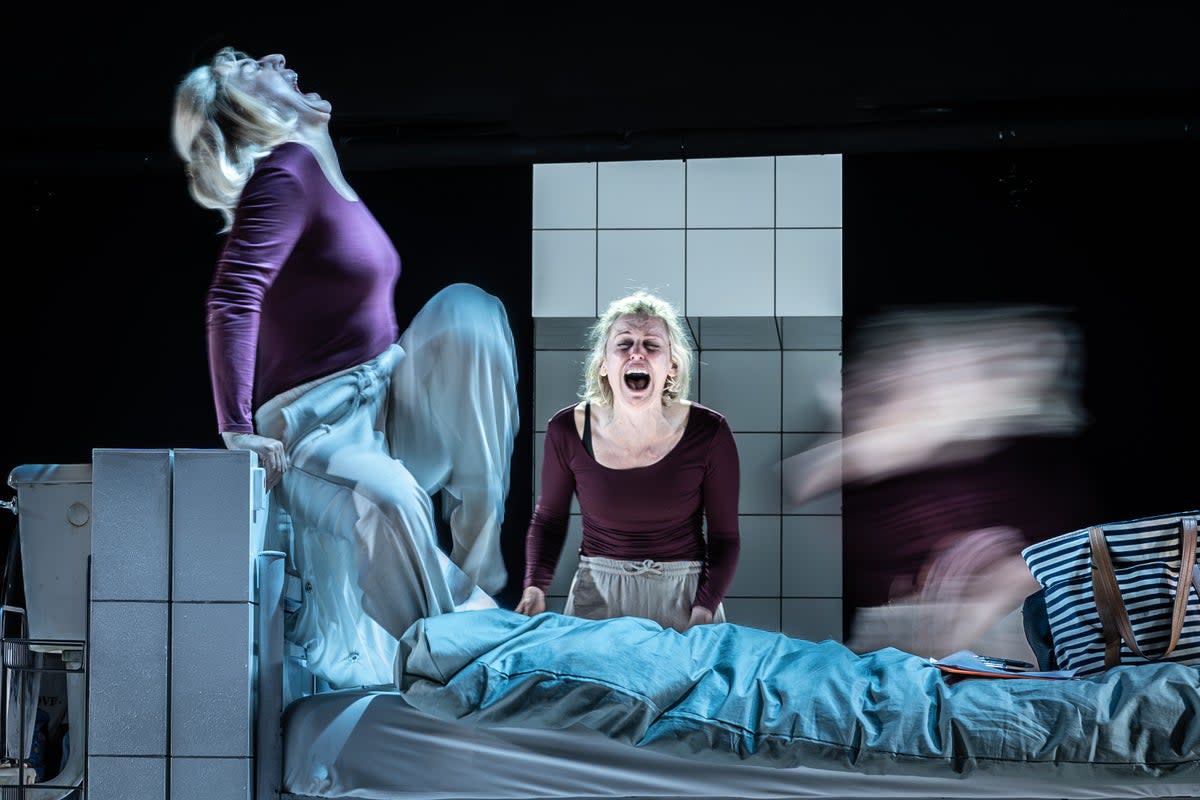People, Places and Things review: Denise Gough’s extraordinary performance has only got better

When Duncan Macmillan’s play about an actress recovering from drug addiction opened at the National Theatre in 2015, many said how wonderful it was, and how rare, to see such a complex lead role written for a woman. Denise Gough had been on the verge of quitting the profession when her portrayal of Emma turned her into a star overnight. It was compared to Mark Rylance’s performance in Jerusalem, helping to power a 2016 West End transfer and winning her an Olivier award.
Eight years on, with the production back in the West End, there are many more strong lead parts around for women; things have changed. But one thing hasn’t, and that’s Gough’s performance. It’s as extraordinary as when she first delivered it: shocking, magnetic, unbelievably real.
In fact, it appears only to have grown in richness and exquisite fragility. From the first scene, in which Emma falls apart in the middle of a performance of The Seagull, the set morphing into a room-shaking club night of colour, noise and excess, you cannot believe she can break further – but then she does. It was a good idea to bring back Macmillan’s play – now in the Trafalgar Theatre with the same Headlong production, directed again by Jeremy Herrin and in Bunny Christie’s pure white set – because even if you saw it before, you’ll know you need to see it again.
Close-to-the-edge Emma rocks up at rehab, twitching and gurning, bruised and mascara-streaked, knowing that her life of stealing from people, waking up with strange men and sleeping on the streets must end. One problem: she is frequently told she must be “completely truthful or the recovery process won’t work”, but lies compulsively. Did her brother really die the week before she arrived at rehab? Is her name really Emma? And why, when asked to give her story in a group session, does she recite the plot of Hedda Gabler?
Herrin’s production is loud, intense, and full of perfectly measured performances: Sinead Cusack is sharp in three different roles, Danny Kirrane gently moving as an addict-turned-nurse, and Malachi Kirby excellent as the wise comrade who has done recovery and relapse a fair few times before. We see the way that addicts in recovery quickly become a tribe, enduring shared experiences few others would understand; there is a poignancy and a kindness to what they say when one of their tribe “graduates”: “I hope I never see you again.” In vivid moments, we see Emma’s cold-turkey hallucinations brought to life, as lookalikes swarm the stage.
Emma’s addiction stems from the fact that she believes life is meaningless, purposeless chaos, and that drink and drugs are the only things to ever love her back. An encounter with her parents in the second act must be one of the most brutal, nerve-shredding and heartbreaking scenes written in 21st-century theatre. But Emma’s work as an actress, her attachment to stories, suggests that underneath all of her resistance, nihilism and denial, she knows there is meaning in art.
People, Places and Things is not just a humane hymn to the vulnerability of people and how scary it is to truly believe in something, but a celebration of the healing power of art and theatre. It’s an electric, communal experience. The play can now be regarded as a contemporary classic, Gough’s performance confirmed as one of the greatest of her generation.
Trafalgar Theatre, until 10 August


